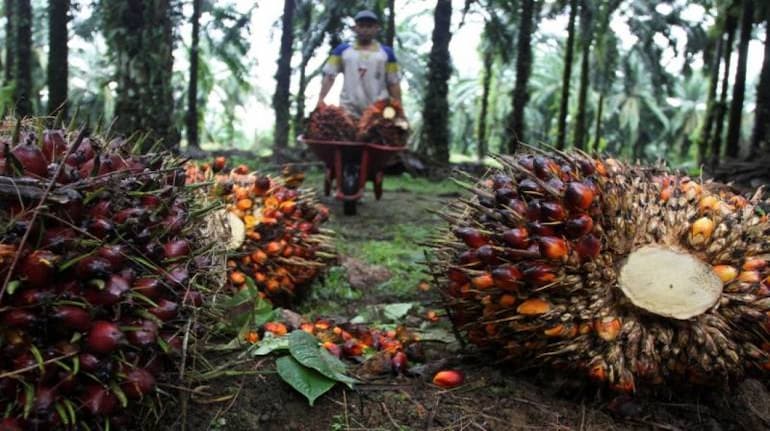



Also Read: Indonesian palm oil export ban set to raise Indian inflation
Indonesia said April 22 it would restrict the export of palm oil from April 28, shocking policymakers and importers. The country exports 60 percent of global palm oil supplies. Palm oil is the most commonly consumed vegetable oil globally and is used extensively in industrial production.
After Indonesian President Joko Widodo announced the export ban, the country received panicked calls from many governments, including India’s, a diplomat said.India is the biggest buyer of palm oil and its imports rose after sunflower oil shipments from war-hit Ukraine️ dried up. Soon after the announcement, traders scrambled to place bulk orders for Indonesian palm oil before April 28. This has continued as traders said the situation remains fluid and might deteriorate fast.However, Indonesia clarified on April 5 that its export ban on palm oil would not cover crude palm oil (CPO) and it would be confined to refined, bleached and deodourised (RBD) palmolein.“This should be considered very good news for India as we are overly dependent on CPO. Of the $9.2 billion worth of palm oil imported in the first 11 months of FY22, $7.4 billion, or nearly 80 percent, was in the form of CPO. But the latest crisis has shaken the supply chain in Indonesia and a global panic over possible shortages in cooking oil has resulted in high bidding costs for importers,” a senior functionary of the Solvent Extractors’ Association said.Meanwhile, Indonesian media reported that the ban may be widened to include RBD palmolein if there are domestic shortages. As a result, importers aren’t heaving a sigh of relief just yet.“Industry stakeholders have told us that whatever happens, the palm oil crisis will raise prices for the next 3-4 months at least,” an official said.Malaysian dilemmaFor the time being, Indian traders are counting on Malaysian palm oil to meet the gap in demand. Industry insiders said advance booking of palm oil shipments from Malaysia have soared over the past few days.However, Malaysia itself is struggling with a domestic labour shortage that has delayed the harvesting of palm oil. According to news reports from Malaysia, many producers and planters recorded a double-digit production decline in the first 10 days of April because of bad weather.Malaysia and Indonesia together account for roughly 85 percent of the world’s palm oil production. High prices and a shortage of palm oil in their domestic markets have precipitated protests in some cases.Rising intakeIndia is the biggest importer of edible oils. Palm oils make up two-thirds of edible oil imports, followed by soya oil (20 percent) and sunflower oil (16 percent), according to the International Sunflower Oil Association.The Economic Survey for 2021-22 predicted that India’s cooking oil imports would increase 3.4 percent per annum till 2030 as growing urbanisation and changing dietary habits lead to a shift toward highly processed foods with high vegetable oil content.Overall, India’s import of various kinds of edible oils, along with by-products, rose to $11.3 billion in FY21 from $9.87 billion in FY20 even during the pandemic. It has since shot up 58 percent to $ 17.83 billion in the first 11 months of FY22. Experts said this was caused by higher prices and not a boost in import volumes.According to the Department for Food and Public Distribution, about 56 percent of domestic demand for edible oils was met through imports as of FY20. That year, total production of domestic edible oils was 10.6 million tonnes, while total edible oil imports stood at 13.4 million tonnes. The government estimates that up to 66 percent of India’s edible oil needs are currently imported.Global prices of edible oils have risen for almost a year due to various factors. Bad weather, labour shortages and freight logistics issues caused by Covid-19 has plagued large exporting nations such as Malaysia and Indonesia (palm oil), Argentina (soyabean oil), and Ukraine and Russia (sunflower oil).
Discover the latest Business News, Sensex, and Nifty updates. Obtain Personal Finance insights, tax queries, and expert opinions on Moneycontrol or download the Moneycontrol App to stay updated!
Find the best of Al News in one place, specially curated for you every weekend.
Stay on top of the latest tech trends and biggest startup news.